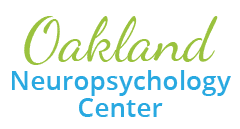
ADHD & Executive Functions
Many parents that bring their children to our center have questions about attention. For example, is the child simply creative and an “out-of-the-box” thinker, or is he really struggling more than other children? Paying attention is a complex task that involves different parts of the brain, including the executive functions. Everyone can have trouble paying attention or staying organized at one time or another, but when these problems persist for a long period of time and start interfering with daily life, it can become frustrating and overwhelming.
ADHD is a brain-based condition that affects about 8-10% of school-aged children. It is manifested by:
- poor attention, which may look like forgetfulness or daydreaming
- lack of self-control, frequently interrupting others, creating disruptions, and acting impulsively
- being distracted by irrelevant sights and sounds
- problems with organization / planning
- jumping from task to task or not being able to complete them
- excessive body movements, fidgeting, and squirming
- difficulty following through with responsibilities
If these symptoms are left untreated, ADHD can lead to frustration with school and work performance, low self-esteem, and poor social relationships. Since so many factors impact our ability to focus and may look like ADHD, diagnosing this condition is a challenging task. Therefore, a comprehensive neuropsychological evaluation is the first step to rule out these factors.


